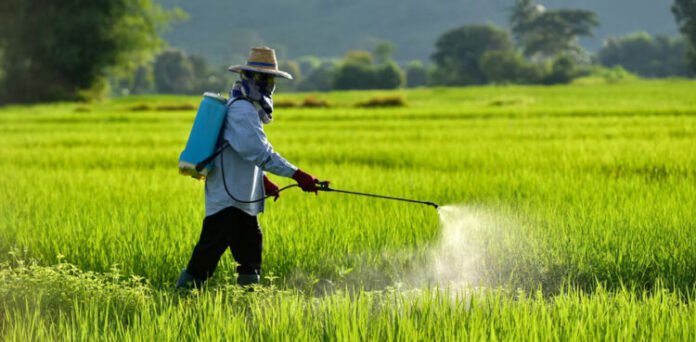KARACHI: The agricultural landscape of Pakistan is entering a precarious phase as significant delays in pesticide registrations and import permissions from the National Agri-trade & Food Safety Authority in Karachi are threatening the timely availability of critical crop protection agro-chemicals. The Pakistan Crop Protection Association has formally raised alarms about this perturbing situation in a letter addressed to the Plant Protection Adviser and Director General of the NA&FSA, with a copy sent to the Ministry of National Food Security and Research.
In a letter dated June 30, PCPA Executive Director, Muhammad Sarwar Rahi highlighted that substantial number of registration cases—categorized under Forms 1, 16, and 17—remain pending with the newly built regulatory authority. Despite products being approved in the 62nd & 63rd APTAC meetings held on March 24, 2025 and June 12, 2025, Mr. Tahir Abbas and Dr. Muhammad Basit and Tayab Wilayat, Entomologist have not issued registrations of approved pesticides instead held registrations on different excuses.
According to Rule 19 (b) of Agricultural Pesticides Rules, 1073, once APTAC grants approval for registration of a pesticides, the NA&FSA is obligated to issue the registration certificates forthwith without any further queries, as all inquiries are needed to be addressed prior to the acceptance of applications as provided by Rule 9A(j) of APR, 1973. Similarly, Rule 9A(5)(j) of the APR, 1973 stipulates that import permission certificate of fresh applications on Form-16 must be issued within sixty days and on Form17 within thirty days and renewal must be issued within fifteen working days if no adverse effect reported during the valid period of registration.
The PCPA has condemned the NA&FSA for what it views as a malicious and unjustified delay in processing pesticide registrations in sheer violation of rules, which has significantly disrupted import and marketing schedules, hindering the supply of pesticides to farmers during critical growing seasons for cotton, rice, sugarcane, corn, and wheat.
Additionally, there are allegations that officials, including Tahir Abbas, Dr. Muhammad Basit, and Tayyab Wilayat, are employing willful and inconsistent questioning as a means to extract bribes, which further complicates the already difficult business climate. Reports indicate that intermediaries, such as entomologist Umar Farooq from Multan, are being used to facilitate these illicit payments for faster processing.
The PCPA has labelled the existing backlog as “alarming,” warning that it threatens the timely availability of essential crop protection products in the local market. As cotton and rice the nation’s primary crops are currently being cultivated, there are significant challenges in providing necessary pesticides for pest management. The association has also expressed urgent concerns regarding the upcoming wheat planting season and the cultivation of key vegetables like potatoes, tomatoes, and cucumbers. Without a prompt resolution to these regulatory challenges, the industry anticipates ongoing shortages in product availability.
The PCPA has called on the federal government to act swiftly to prevent the agricultural sector from suffering due to bureaucratic inefficiencies. With farmers already facing climatic and economic challenges, any disruption in the pesticide supply chain could have severe repercussions for crop yields and national food security.
Waseem Ajmal Chaudhry, Secretary of the Ministry of National Food Security and Research, reprimanded Tahir Abbas and Dr. Muhammad Basit for their failure to process pesticide import permissions on time, but these officials reportedly ignored his warnings and continued their previous routine. According to sources, these officials have support of Dr. Syed Bilal Haider, Joint Secretary, MoNFS&R, who had previously been accused of extorting money as front man of Farhat Shehzad alias Farah Gogi as well as Mrs. Saima Ahad Cheema who is batchmate of Tahir Abbas from 30th CTP.
As the agricultural community awaits resolution, the stakes could not be higher for the farmers, the economy, and the nation’s food security.




